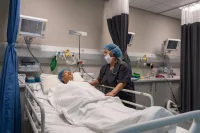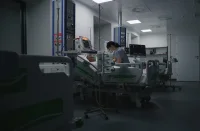Sepsis affects approximately 49 million people worldwide each year. To reduce the mortality rate and the global burden of sepsis, the World Health Organization has classified it as a priority research area. When combined with surgical trauma, anaesthetic drugs, and various invasive procedures, the impact intensifies, leading to further impairment of vital organ functions such as respiration and circulation. Improving the perioperative prognosis of patients with concurrent sepsis is a challenge for anaesthesiologists.
Bundled therapies form the crux of current sepsis management, focusing on patient revival through fluid administration, timely antibiotic administration, stabilisation of cardiovascular function and blood flow, and supportive care to prevent organ failure. However, the limited efficacy of these therapies, especially in treating multiple organ failure, highlights the need for novel sepsis treatments.
Medical researchers worldwide are exploring the impact of cell-based therapies on sepsis management and treatment. To advance this understanding, a research group led by Prof Xiangming Fang from the Department of Anesthesiology and Intensive Care at The First Affiliated Hospital, School of Medicine, Zhejiang University, China, reviewed the existing literature on cell-based therapies.
This review provides an overview of immune cell therapy, its current status, and progress in sepsis research. It discusses potential strategies for managing patients with sepsis during perioperative stages.
The research group found that mesenchymal stem cell (MSC)-based therapies are emerging as a promising approach for treating sepsis. MSCs have progressed to phase II clinical trials, reflecting the growing interest in their therapeutic potential.
The researchers found that innate immune cells called macrophages, particularly those expressing high levels of triggering receptor expressed on myeloid cells 2 (TREM2high), have shown significant promise in pre-clinical studies addressing surgical sepsis. The phagocytic function (engulfing and digesting infectious agents) of these cells, along with their abilities in debris clearance, tissue repair, and organ perfusion, may ultimately improve outcomes in surgical sepsis cases. Moreover, recent studies show that targeted administration of these macrophages may facilitate organ function recovery, such as heart function, enhancing postoperative outcomes in patients with sepsis.
The researchers also highlight that various immune cell subsets, including neutrophils, natural killer (NK) cells, dendritic cells (DCs), T cells, and B cells, exhibit therapeutic potential in sepsis management. Although neutrophils are essential in immune defence against infection, they can behave abnormally during sepsis, contributing to immune dysregulation and organ dysfunction. Similarly, NK cells help fight viral infections but can have ambiguous effects during sepsis. DCs help initiate immune responses, but their numbers decrease, and their function diminishes during sepsis, making them potential targets for treatment. Various subsets of T cells help regulate immune responses but undergo suppression during sepsis. B cells, traditionally associated with antibody production, also play complex roles in sepsis, with some evidence suggesting they may have a protective function.
There is a need for further studies on the behaviours of these immune cells to uncover potential applications as therapeutic targets. The review also discusses the distinctive challenges in the clinical implementation of cell-based immunotherapies for managing and treating sepsis, including precise cell modification, safety, delivery routes, and cost-effectiveness.
Overall, the advent of cell-based immunotherapies for managing and treating sepsis provides hope to millions of patients and their caregivers.
Source: Chinese Medical Journal
Image Credit: iStock
References:
Hui, Y, Xiaoyu Z, Xiangming F (2024) Advancing cell-based therapy in sepsis: An anesthesia outlook. Chinese Medical Journal.










